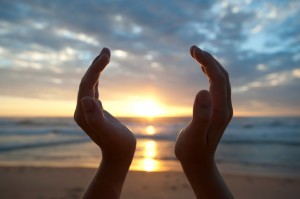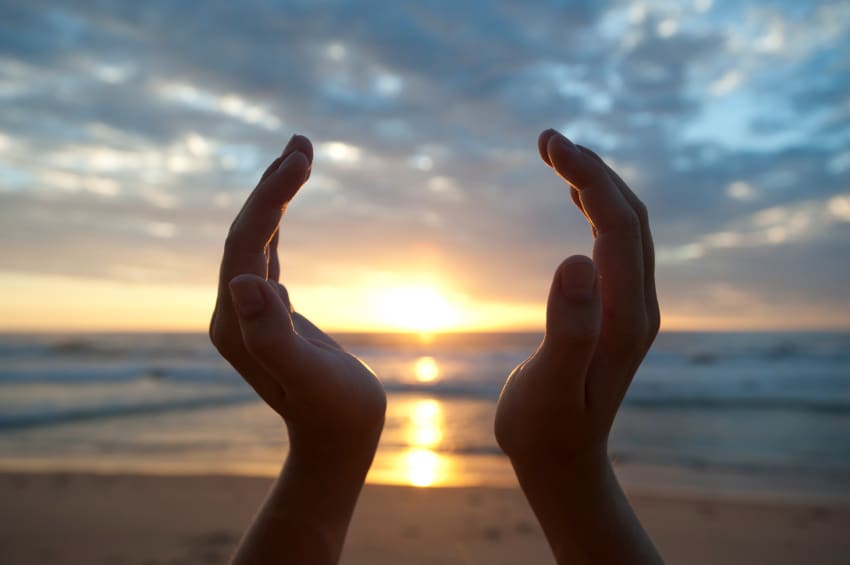There are two ways to live: you can live as if nothing is a miracle; you can live as if everything is a miracle.
— Albert Einstein
Our sages teach us that when we have left this life and we face the Court on High, we will be called upon to answer for our lives. Among the questions that we will be asked is, “Did you throughout your lifetime, eagerly await and anticipate the geulah, the ultimate redemption?”
This is a deceptively difficult question. On the one hand, the answer seems self-evident. Of course we awaited that glorious time of redemption. How could we not? The travails of our lives and the lives of Jews everywhere have kept our thoughts on the coming Messiah, on the coming redemption. And yet… if we are truly honest, have we, with all of life’s day to day distractions, pressures, and mundane preoccupations really, fully, eagerly awaited and anticipated redemption?
We have been distracted by our lives. We cannot help it. As Jews we are aware that we have been created both flesh and soul, of heaven and of the earth. Our thoughts by virtue of our creation must be focused on both redemption and the world. As such, the question is impossible for us to answer in the affirmative.
But we will be asked! So, perhaps, the challenge is not in how we must answer but in how the question is phrased.
Perhaps it will be, when that awesome day comes, that the question will be asked, “Was there a day, an event, a moment, when you felt that redemption was at hand; that you were actually engaged in the redemptive process, that Moshiach was actually knocking on the door, awaiting entry?
In short, was there a moment when you felt the miraculous?
There are those who proclaim that life is filled with miracles, that if we truly open our eyes we cannot help to see that it is so. To them, miracles abound. But what is it that they mean when they speak of miracles?
Is it a miracle when you are accosted on a street corner only to have a police car “miraculously” drive by, frightening off your would-be attacker? Is it a miracle when, faced with foreclosure of your home, you win the Lotto? Is it a miracle to notice the beauty of a field filled with wild flowers?
Does a miracle depend on the suspension of natural law?
Is it all of these things? None of them?
I would suggest that the thing that makes a miracle (versus a fortuitous confluence of circumstances, that is, “luck”) is G-d’s involvement. When G-d is involved in our lives, not only are we experiencing the miraculous but, by definition, redemption is as close as the beating of our own hearts.
As our sages have taught, G-d is close by always. Yet even closeness is not always so easy to discern. We can follow G-d’s commandments, pray fervently, and lead lives of exemplary behavior and yet not feel the closeness of G-d.
As Jews, our history and tradition have taught us that G-d indeed engages in our lives. Didn’t He intercede in the lives of the Hebrews, redeeming them from slavery? The challenge for the modern Jew is that, as Jews, our embrace of miracles are often as communal events and most often in the distant past. They happened only long, long ago. Sinai comes to mind.
But personal miracles? The modern Jew often dismisses such things. Isn’t embrace of miracles the domain of other religious traditions? Aren’t we more “rational” and “legalistic” in our lives?
The truth is, G-d engages us all the time and our experience with miracle is not wholly communal nor in the distant past. Miracles animate every aspect of our existence. It is our success or failure to note and embrace these miracles that will provide our answer to that question on High.
Have we experienced redemption? Yes! Once. A hundred times. A thousand times.
More than asking, What is redemption? or, What is a miracle? we might want to ask, What does it mean to have G-d in our lives, to know the holiness of the Divine touching our everyday lives? To feel as did the Jews at Sinai, who saw the mountain smoking and saw the voices and the flames, who trembled in awe as they responded, “we act and we hear…”?
The question is, Have we felt the hand of G-d in our own lives and responded as did the Jews of old, “I have acted and I have heard”?
That is redemption. That is to know the power of the Moshiach in our lives.
For myself, I can name any number of moments of such redemptive power, but one stands out as so powerful as to make it ever-present in my life. A moment when the whole community of Israel witnessed the miracle, felt it as a people even as each of us embraced it in our own lives.
Forty-five years ago. June, 1967. The Six Day War was racing to its rapid, almost impossible to believe, conclusion. Complete and utter destruction had seemed to have been upon us; now complete victory was within our grasp.
How sweet that victory! How wonderful those days in June, following as they did the tense and terror-filled days in May, when Gamal Nasser, the President of Egypt, declared that Israel would be “washed away by the seas.” The horror of the Shoah (Holocaust) itself seemed to once again weigh down on our hearts and souls.
But victory was there! And with it the certainty that geulah was real and concrete, that Moshiach was indeed knocking.
Everyone knew deeply that we were living during a moment when miracles and holiness surrounded us. There was simply no other way to understand the events around us but as a sequence of miracles. What rational explanation existed for what had transpired in those six, wonder-filled days? It was G-dly. Messianic. Even General Moshe Dayan, hardly of the haredi worldview, reached out and, with the flesh of his own hand, touched the Wall and exclaimed, “Zeh hayom asah Hashem!” This is the day made by G-d.
How else could it be understood?
Miracles were self-evident. Those of us with ears to hear, remembers the Kol Yisrael announcer choking up with emotion as he declared, “Ani nogei’a b’Kotel!” I am touching the Wall.
Maariv’s banner headline proclaimed, “We are at the place for which we waited 2,000 years.” Rav Goren blew the shofar and his mighty blasts pierced our souls, sounding like the Shofar Gadol must have sounded that day at Sinai.
Our corporeal existence was suffused with the holy. Each of our senses seemed to draw in all that was miraculous in the world…. A video shot a month after the War ended showed Jews, thousands upon thousands of them, in Jerusalem, Hebron, the Jordan Valley, Bethlehem, all returning home to G-d and the land He gave us. They hugged one another not as strangers but as long-lost brethren.
Geulah was upon us!
If only we could have sustained that sense of wonder. If only we could have maintained our embrace of  the holy. Perhaps if we had, Moshiach could have come through the door. But, inevitably, such moments of grandeur give way to the everyday. Jobs must be attended to. Children must be fed. Clothes must be mended. Crops must be watered.
the holy. Perhaps if we had, Moshiach could have come through the door. But, inevitably, such moments of grandeur give way to the everyday. Jobs must be attended to. Children must be fed. Clothes must be mended. Crops must be watered.
It is true, the historical realities of those six days were powerful, but it was in our ability to relate to them that the promise of geulah resided. Even now, it is in our ability to see and embrace the miracles all around us that keeps geulah close by.
What can speak to the close relationship between spirit and flesh than to associate our desire for redemption with our need for sustenance? Birkat HaMazon (grace after meals) is primarily a prayer where we both request and thank G-d for all that He provides. Why then did Chazal insert the prayer of Racheim, where we ask G-d to restore and rebuild Jerusalem and its Temple?
Rabbi Shimshon Pincus answers with a parable from the Chofetz Chaim. There was once a man who was banished by the king to a foreign land, far from his family and friends. One day, the king visited that foreign land and allowed each inhabitant one request. When the banished man’s turn came to ask, he requested that the king provide him with his livelihood, a way for the humble man to make his way in the world.
A simple request. A decent request. But the king was aghast. “You are a fool! You could have asked to return to your family and home, and instead you wasted your request on something peripheral.”
Like that man, Am Yisrael has become so preoccupied with asking G-d for the needs of this world that we forget to ask Him to return us to our home, to Yerushalaim and to rebuild the Beit HaMikdash. So Chazal inserted Racheim into Birkat HaMazon – that we might remain focused on what is truly important so that we do not become distracted by things which inevitably blind us from the Jerusalem of our life.
Racheim, as R’ Naftali Ropshitz notes, is spoken in the present tense; Who rebuilds. G-d currently and continuously rebuilds Jerusalem. Right before our eyes. What generation can speak to that truth more than our own? That Jerusalem is our holy city. That miracles abound. That redemption is always at hand.
Rabbi Dr. Eliyahu Safran serves as OU Kosher’s vice president of communications & marketing.
The words of this author reflect his/her own opinions and do not necessarily represent the official position of the Orthodox Union.

